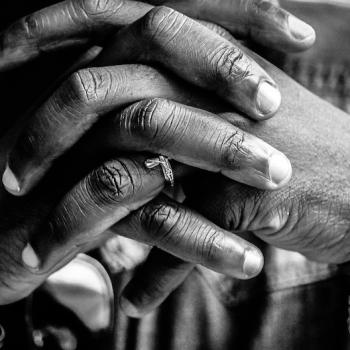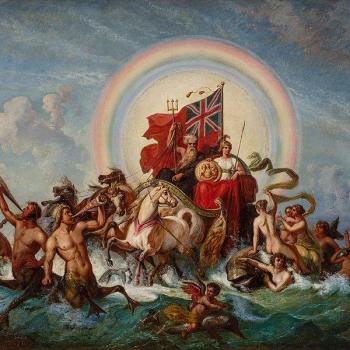Recent research sheds new light on the fundamental ideological divide between conservatives and liberals. Contrary to long-standing theories, researchers suggest that the primary distinction lies not in perceptions of danger but in hierarchical worldview beliefs— essentially, how people view the fundamental divisions and categories that make up reality.
This fascinating insight has implications for the church as we engage family, friends, and culture. It offers a nuanced approach to understanding and addressing the deep-seated beliefs that underlie many of our social conflicts.
Hierarchical World Beliefs
The research suggests that conservatives tend to view the world through a lens of inherent hierarchies, where distinctions between categories are significant and meaningful. Liberals, on the other hand, are more inclined to see these distinctions as arbitrary or superficial.
It is important to note that “hierarchy” is a bit of a misnomer. The term actually refers not to social ranking but to the perceived reality of fundamental categories. This understanding can help the church navigate cultural engagement by addressing the root of ideological differences rather than merely their manifestations.
Our Approach to Basic Categories
The church has a unique role in helping individuals (both within and outside its community) to explore and understand the basic lines that shape their worldviews. For believers, this exploration is not about blurring distinctions but about discerning which lines are fundamental and why. By doing so, the church can foster deeper conversations that go beyond surface-level disagreements to address the core of our beliefs and values.
One strategy the church can employ is to encourage self-reflection on the nature of these fundamental lines. Many people hold their worldview assumptions unconsciously, never considering their origins or implications. By bringing these assumptions to light, the church can help individuals understand how their views on politics, doctrine, and social issues are shaped by their deeper beliefs about reality.
Engage in Thoughtful Dialogue
To engage thoughtfully with those who hold differing views, the church must prioritize understanding over persuasion. (Recall that “priority” is about determining the order for dealing with items or tasks. We have to understand in order to persuade most effectively.)
This means creating spaces for genuine dialogue where people feel heard. They should feel invited to explore and articulate their fundamental beliefs. In these conversations, the goal is not to win an argument but to foster mutual understanding and respect. In the process, we might find that we both need to change how we think or what we value.
One practical approach is to ask questions that prompt deeper reflection. For example, in discussions about social issues, instead of debating specific policies, the church can ask why individuals hold certain views about human nature, the role of government, or the importance of community. These questions can reveal the underlying beliefs that shape their positions and open the door to more meaningful conversation.
Address Cultural Divides
The researchers highlight several areas where hierarchical world beliefs play a significant role in cultural divides, such as LGBTQ+ issues, welfare policies, and abortion. The church can address these divides by helping individuals understand the fundamental categories at play.
For instance, in discussions about gender and sexuality, the church can explore the nature of male and female distinctions. Rather than simply arguing for or against specific policies, the church can help people consider why these distinctions matter and how they relate to broader beliefs about identity and human flourishing.
Similarly, in debates about welfare and economic policies, the church can encourage reflection on the nature of wealth and poverty. By exploring the underlying assumptions about work ethic, talent, the “American Dream,” and moral values, the church can help individuals understand the deeper beliefs that inform their views on economic inequality.
In the context of abortion, the church can facilitate conversations about the nature of life and personhood. By addressing the fundamental question of when life begins, the church can help people understand the broader implications of their beliefs and engage in more thoughtful dialogue about this deeply divisive issue.
A True and Balanced Worldview
The ultimate goal of the church’s engagement with culture should be to promote a balanced worldview that acknowledges the reality of fundamental distinctions while also recognizing the value of empathy and understanding. After all, you’ll rarely persuade someone you don’t take the time to understand them. This balance requires a commitment to truth and compassion, where the church seeks to understand the perspectives of others without compromising its core beliefs.
By helping individuals explore their fundamental worldview lines, the church can contribute to a more thoughtful and respectful public discourse. This approach not only addresses the root of ideological divides but also fosters a culture of mutual respect, humility, and understanding.
(Do we not want to be more Christlike in embodying these virtues?)
Conclusion
In a world increasingly divided by ideological conflicts, the church plays a vital role in promoting thoughtful engagement with fundamental worldview beliefs. By helping individuals explore and understand the basic lines that shape their views, the church fosters deeper conversations that go beyond surface-level disagreements. In other words, we prioritize truth with humility.
This approach encourages a balanced worldview that values both truth and empathy, contributing to a more respectful and understanding society. Through genuine dialogue and reflection, the church can help to bridge the cultural divides that so often incapacitate our ability to work together for the common good.

















